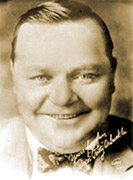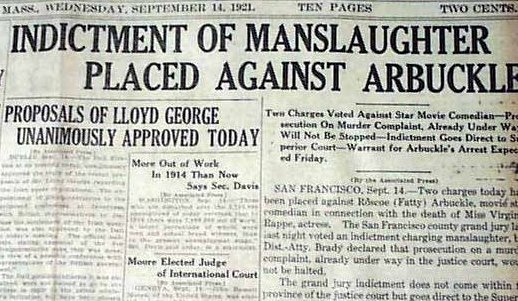The media frenzy brought about by the recent Casey Anthony trial is nothing new. Roscoe “Fatty” Arbuckle was caught in the same sort of sensationalist scandal over 90 years ago.
Arbuckle was known for being agile and a master of slapstick, even with his large size. He wrote, directed and starred in many silent films. In 1914, he was offered $1,000-a-day, plus profits, to make movies with Paramount Pictures. He was so popular and successful, they offered him a whopping three-year, $3 million contract.
In 1921, Fatty was in the height of his silent film career when tragedy struck. After a raucous hotel party in San Francisco’s St. Francis Hotel, aspiring actress Virginia Rappe was dead and he was charged with rape and manslaughter. While she did not die immediately, Rappe, who had a history of chronic cystitis, was found seriously ill. A hotel doctor examined and released her with nothing more than a bit of morphine to calm her down. She died a few days later in the hospital from a ruptured bladder. Arbuckle’s accuser, Maude Delmont, claimed Arbuckle had raped her, and the prosecution cited his size as the reason for the rupture.
The papers took this story and ran. Here was a star, larger than life, who had been accused of raping and killing a young woman. They vilified him from the beginning. The San Francisco Examiner covered this story with fervor, but this was only the beginning. Media outlets all over the country caught onto Arbuckle fever, with newspaper magnate William Randolph Hearst boasting about the sales this case brought about.
Three trials later, he was acquitted of all wrong-doing, but his career was over. The media fervor was so strong, however, that he had already been convicted in the court of public opinion.
Thomas Gladysz from the San Francisco Chronicle writes, “For months, from the time the first charges were leveled through the course of the three trials, newspapers across the country fueled moral outrage by printing story after story regarding Arbuckle’s (and Hollywood’s) depraved behavior. Led by civic and religious groups, there were calls to clean up the movie industry. And with this public outcry, the comedian’s films – which had earlier made millions laugh with their good-natured humor – were withdrawn from circulation.”




Leave a response